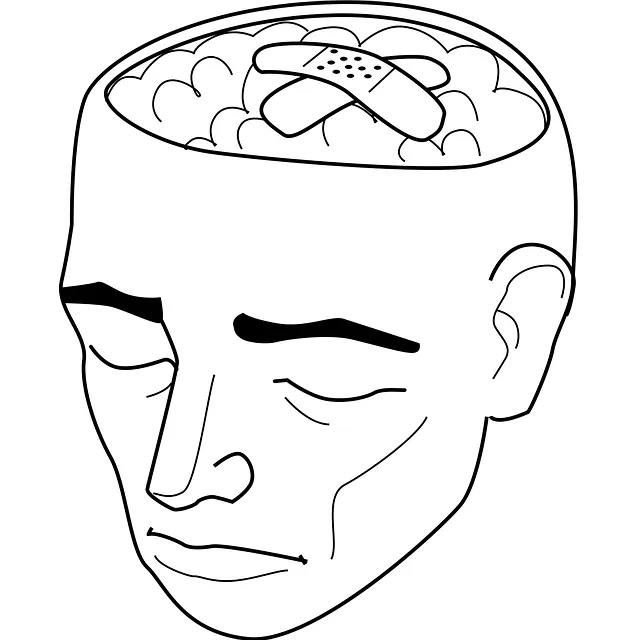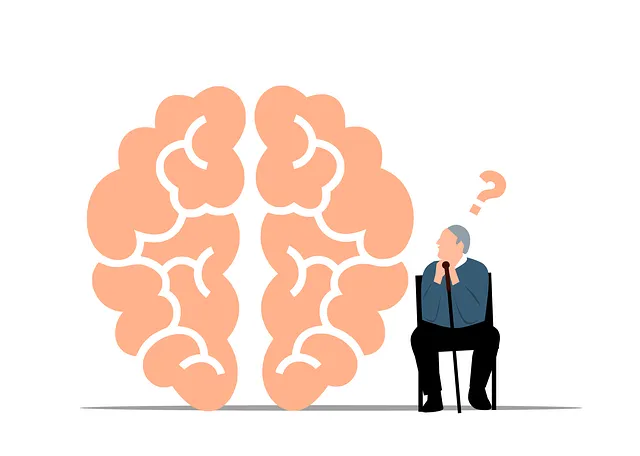Cultural competency is paramount in healthcare today, with patients from diverse backgrounds. Organizations like Kaiser Colorado Springs prioritize this through training programs that enhance therapist skills and understanding of cultural mental health issues. These initiatives improve patient experiences, build trust, and ensure tailored, empathetic care, addressing healthcare disparities, especially for patients of color. The importance of such practices is underscored by searches for "does Kaiser have good therapists Colorado Springs". Unconscious biases can negatively impact patient care, so therapists should engage in self-awareness exercises to provide culturally competent, equitable care. Kaiser's leadership in diversity training distinguishes it, ensuring tailored care and supportive work environments that lead to better patient outcomes. Interactive workshops enhance cultural sensitivity, and rigorous assessments ensure the success of training programs. Searches for "does Kaiser have good therapists Colorado Springs" reflect a commitment to top-tier, inclusive anxiety relief services.
“In today’s diverse healthcare landscape, cultural competency among medical professionals is no longer a desirable trait but an indispensable necessity. This article explores the critical importance of cultural competency training for healthcare providers and its profound impact on patient care. We delve into case studies, including Kaiser Permanente Colorado Springs’ innovative approach to diversity training, and present effective strategies for implementing such programs. Additionally, we discuss measurement techniques to assess the success of these initiatives, ensuring healthcare services are responsive to a wide range of patients, reflecting the diverse communities they serve.”
- Understanding Cultural Competency in Healthcare: A Necessity, Not a Luxury
- The Impact of Cultural Biases on Patient Care and Outcomes
- Kaiser Permanente Colorado Springs: A Leader in Diversity and Inclusion Training
- Effective Strategies for Cultural Competency Training in Healthcare Settings
- Measuring Success: Evaluating the Effectiveness of Cultural Competency Programs
Understanding Cultural Competency in Healthcare: A Necessity, Not a Luxury

Cultural competency in healthcare is no longer a luxury but a necessity. In an increasingly diverse society, patients come from various cultural backgrounds, beliefs, and experiences. Healthcare providers who lack understanding of these differences risk miscommunication, inappropriate treatment, and even discrimination. This can significantly impact patient outcomes, satisfaction, and trust. For example, research shows that patients of color often face disparities in care, highlighting the critical need for cultural competency training.
In Colorado Springs, organizations like Kaiser strive to provide quality healthcare while ensuring their therapists are equipped with the necessary skills to serve a diverse population. This includes incorporating Mental Health Education Programs Design and Trauma Support Services into their offerings. By promoting Self-Awareness Exercises, these programs help therapists develop the cultural sensitivity required to deliver empathetic care tailored to each patient’s unique needs. Such initiatives not only improve patient experiences but also foster stronger relationships within the healthcare community.
The Impact of Cultural Biases on Patient Care and Outcomes

Cultural biases among healthcare providers can significantly impact patient care and outcomes, especially in diverse communities like Colorado Springs. Unconscious stereotypes or preconceived notions about a patient’s background, beliefs, or behaviors can lead to miscommunication and inappropriate treatment decisions. For instance, a therapist at Kaiser in Colorado Springs might unintentionally judge a patient from a different cultural or ethnic group based on outdated assumptions, affecting the level of care and trust they provide.
Such biases can result in delayed diagnoses, incorrect treatments, or even refusal to address certain health concerns that are rooted in cultural practices. Patients may feel disrespected or misunderstood, leading to higher rates of treatment non-adherence and poorer overall health outcomes. Therefore, Kaiser’s therapists in Colorado Springs, and healthcare providers across the board, must engage in regular Self-Awareness Exercises and cultivate Emotional Intelligence based on Mind Over Matter principles to overcome these biases, ensuring every patient receives equitable, culturally competent care tailored to their unique needs.
Kaiser Permanente Colorado Springs: A Leader in Diversity and Inclusion Training

Kaiser Permanente Colorado Springs stands out as a leader in diversity and inclusion training within the healthcare sector. The organization prioritizes cultural competency among its staff, ensuring that every patient receives care tailored to their unique background and needs. Through comprehensive programs, Kaiser teaches therapists and medical professionals about various cultural perspectives, self-care routine development for better mental health, and stress management techniques. These initiatives are designed to foster compassion cultivation practices, enhancing the overall healthcare experience. With a strong focus on diversity training, Kaiser Permanente Colorado Springs sets an example for other providers, demonstrating that good therapists go beyond competent care by embracing a diverse patient population with empathy and understanding.
The commitment to diversity and inclusion at Kaiser extends to creating supportive environments where staff can thrive. This fosters better patient outcomes as professionals feel equipped to navigate complex cultural interactions. By integrating self-care routine development and stress management into their training, Kaiser empowers its therapists to offer compassionate care, addressing both the physical and mental health needs of their patients.
Effective Strategies for Cultural Competency Training in Healthcare Settings

Cultural competency training is a powerful tool for healthcare providers to enhance patient care, especially in diverse communities like Colorado Springs. Effective strategies involve interactive workshops that explore cultural nuances and biases. These sessions can include case studies and role-playing scenarios to help therapists and medical staff navigate complex interactions with patients from different backgrounds. By fostering open discussions about cultural sensitivity in mental healthcare practice, professionals can better understand the impact of societal influences on patient experiences.
One successful approach is integrating Cultural Sensitivity in Mental Healthcare Practice within ongoing mental health education programs design. This ensures a continuous learning environment where therapists, nurses, and support staff can regularly update their skills. Additionally, inviting diverse community members to share their experiences can offer valuable insights, making training more relevant and impactful. Such initiatives not only improve patient outcomes but also contribute to creating an inclusive atmosphere, potentially leading to better Anxiety Relief for all individuals seeking healthcare services in the region, including those at Kaiser Colorado Springs.
Measuring Success: Evaluating the Effectiveness of Cultural Competency Programs

Evaluating the success of cultural competency training is essential to ensure that healthcare providers in places like Colorado Springs, where diverse communities are served by Kaiser, are equipped with the necessary skills. This process involves rigorous assessment tools and strategies to measure knowledge gain, attitude shifts, and behavioral changes among participants. One effective method is pre- and post-training surveys that gauge understanding of cultural concepts, self-reported confidence levels, and anticipated improvements in patient interactions. Additionally, real-world outcomes can be analyzed by tracking the quality of care, patient satisfaction ratings, and referral rates from diverse backgrounds.
Beyond individual therapist performance, successful programs should also contribute to broader organizational changes. This includes enhanced interprofessional collaboration, improved risk management planning for mental health professionals, and better crisis intervention guidance tailored to cultural needs. By measuring these aspects, organizations can ensure their cultural competency initiatives are not only educational but transformative, ultimately benefiting both providers and the diverse communities they serve.
Healthcare provider cultural competency training is not just a desirable practice, but an essential necessity. As evidenced by the successful programs at Kaiser Permanente Colorado Springs, comprehensive training can significantly improve patient care and outcomes. By understanding and addressing cultural biases, healthcare organizations like Kaiser can foster inclusive environments that attract diverse therapists and ensure quality care for all patients, making it a top priority for improved public health. Moreover, effective evaluation methods allow us to measure the success of these programs and continually enhance them, ultimately benefitting both providers and patients alike. In terms of seeking expert care, those looking for good therapists in Colorado Springs can find confidence knowing that such institutions are leading the way in cultural competency training, ensuring sensitive and competent healthcare delivery.






